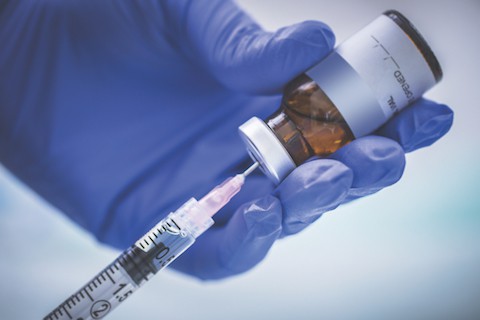
The efficacy of Chinese biotech company CanSino Biologics’s (CanSinoBio) single-dose COVID-19 vaccine could decrease over time, according to the company’s chief scientific officer Zhu Tao.
During an online presentation on Wednesday, Tao said that the vaccine is likely to retain an efficacy rate of 50% or more five to six months after initial vaccination.
According to the World Health Organization (WHO), a vaccine must have at least a 50% efficacy rate to be considered effective in preventing COVID-19.
Tao added that a booster dose is being considered, with trial participants potentially set to receive a second jab around six months after their first dose.
“A booster shot six months later led to a seven times to ten-times increase in neutralising antibody levels, so we expect in this case efficacy could reach over 90%,” said Tao.
He said, however, that further clinical trial data is required before the exact efficacy can be determined.
Earlier this year, CanSinoBIO revealed that its vaccine was 65.7% effective at preventing symptomatic COVID-19 cases, based on an analysis from late-stage trials, although this dropped to 65.28% after two weeks.
The one-dose COVID-19 vaccine has been approved for use in China, Pakistan, Hungary and Mexico.
Another single-dose vaccine, developed by Johnson & Johnson (J&J), recently received EU authorisation after proving effective in late-stage trials.
J&J’s vaccine was found to be 66% effective overall in preventing moderate-to-severe COVID-19, 28 days after vaccination.
The data also demonstrated that the vaccine was 85% effective in preventing severe disease across all regions and showed protection against COVID-19-related hospitalisation and death, beginning 28 days after vaccination.
Single-dose vaccines have been identified as particularly useful during the pandemic, with advantages including easier storage and ease of use as people are not required to return for a second injection.
mRNA-based vaccines, such as Pfizer/BioNTech and Moderna’s respective jabs, have higher efficacy rates compared to both CanSinoBIO and J&J’s vaccines, but also require ultra-low storage temperatures and are administered as part of a two-dose regimen.
This has raised storage and distribution issues – particularly in developing countries which may not have the infrastructure to support the wide-spread rollout of this type of vaccine.




